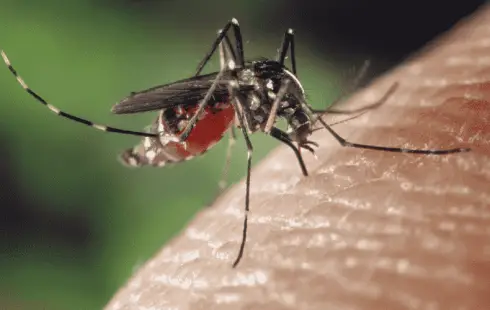
Crypto Investment Entry and Exit Strategies of Institutional Investors
Section: Business
 In a concerning development, the tally of probable cases of dengue fever in Brazil has surged almost twofold within the span of a single week. Data from the Ministry of Health indicates that nearly 120,000 cases were officially recorded in the initial three weeks of the year, escalating to an alarming figure of nearly 220,000 by the end of January. This marks an 80 percent surge within a week and is three times higher than the corresponding period last year. January witnessed 15 reported fatalities attributed to the viral disease, with an additional 149 cases still pending investigation. Concurrently, infections from the Chikungunya virus have witnessed a substantial year-on-year increase.
In a concerning development, the tally of probable cases of dengue fever in Brazil has surged almost twofold within the span of a single week. Data from the Ministry of Health indicates that nearly 120,000 cases were officially recorded in the initial three weeks of the year, escalating to an alarming figure of nearly 220,000 by the end of January. This marks an 80 percent surge within a week and is three times higher than the corresponding period last year. January witnessed 15 reported fatalities attributed to the viral disease, with an additional 149 cases still pending investigation. Concurrently, infections from the Chikungunya virus have witnessed a substantial year-on-year increase.
Experts attribute this surge to the hot and rainy weather prevalent during the summer months in Brazil and neighboring South American countries like Paraguay and Argentina. These climatic conditions foster the reproduction of the Aedes aegypti mosquito, also known as the Egyptian tiger mosquito or yellow fever mosquito, which serves as a vector for diseases such as dengue. The mosquitoes deposit their larvae in stagnant water, where they rapidly mature in warm conditions. Even minuscule water accumulations, found in discarded plastic waste, become breeding grounds for these larvae, making containment efforts challenging.
In response to the escalating crisis and alongside traditional initiatives such as annual information campaigns and targeted pesticide spraying, Brazil has recently introduced a new weapon in the fight against dengue. A vaccination campaign has been initiated, leveraging the newly approved Qdenga vaccine from the Japanese manufacturer Takeda. The vaccine received regulatory approval in December, and Brazil has already acquired several hundred thousand doses, with plans to secure 6.5 million doses by year-end. The vaccination drive primarily targets children aged six and above. Notably, Qdenga has also gained approval in the European Union, Indonesia, and Thailand.
Dengue fever often manifests without symptoms; however, in approximately 20 percent of cases, infections are accompanied by fever, chills, severe headaches, and body aches. Severe cases tend to occur, especially following a second infection, with a mortality rate ranging from one to five percent.

Section: Business

Section: Arts

Section: Arts

Section: Business

Section: Business

Section: Arts

Section: Health

Section: Arts

Section: News

Section: News
Health Insurance in Germany is compulsory and sometimes complicated, not to mention expensive. As an expat, you are required to navigate this landscape within weeks of arriving, so check our FAQ on PKV. For our guide on resources and access to agents who can give you a competitive quote, try our PKV Cost comparison tool.
Germany is famous for its medical expertise and extensive number of hospitals and clinics. See this comprehensive directory of hospitals and clinics across the country, complete with links to their websites, addresses, contact info, and specializations/services.
Join us for the 10th Summer Concert at the Heilig Geist Church, featuring the captivating sounds of two trumpets accompanied by a majestic organ. This concert will showcase works by renowned composers including J.S. Bach, A. Torelli, P. Franceschini, H. Purcell, and others.



No comments yet. Be the first to comment!